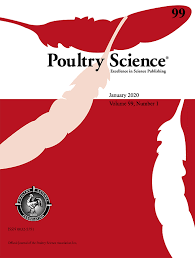Document type: Scientific article published in Frontiers in Veterinary Science
Authors: Girma Tesfahun Kassie, Woinishet Asnake, Aynalem Haile, Tesfaye Getachew Mengistu, Solomon Gizaw, Barbara Rischkowsky
Preview: Improved breeding practices and participatory health services have been designed and implemented by a partnership between national and international institutions in various parts of Ethiopia since 2014. Based on a panel data of two waves, we have estimated the impact of these interventions on small ruminant fertility, offtake, return per head of animal, and gross income per adult equivalent. Different specifications of the difference-in-differences model revealed that access to small ruminant health services has increased offtake, return per head of sheep/goat, and gross income per adult equivalent. Participants in community-based small ruminant breeding also have higher offtake and gross income per capita than those who are not taking part. The findings of this study are expected to help understand the economic benefits that accrue to rural areas when livestock development interventions are made based on the right diagnosis. The results of this study will also be useful in informing the ongoing discussion in Ethiopia on the transformation of the livestock sector.






